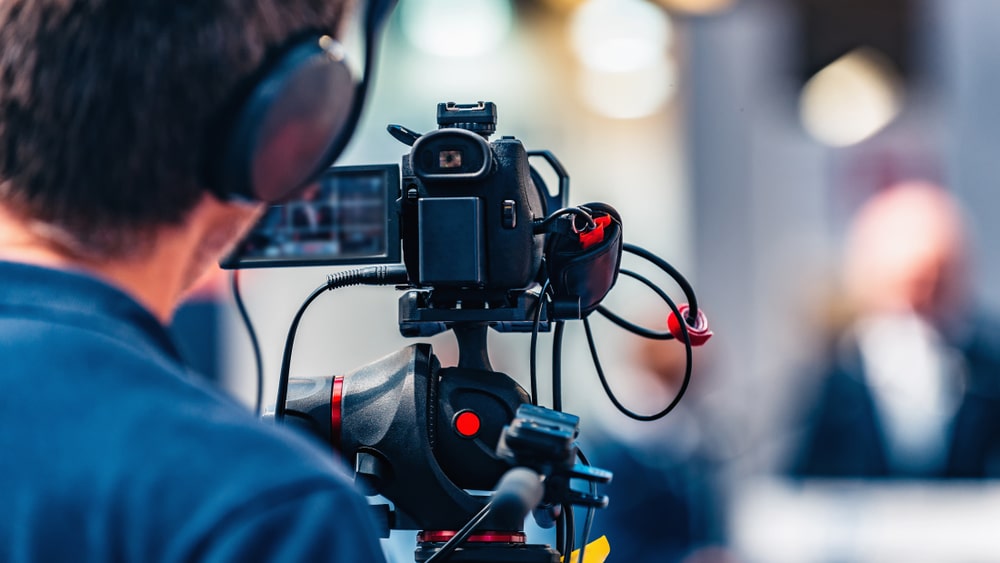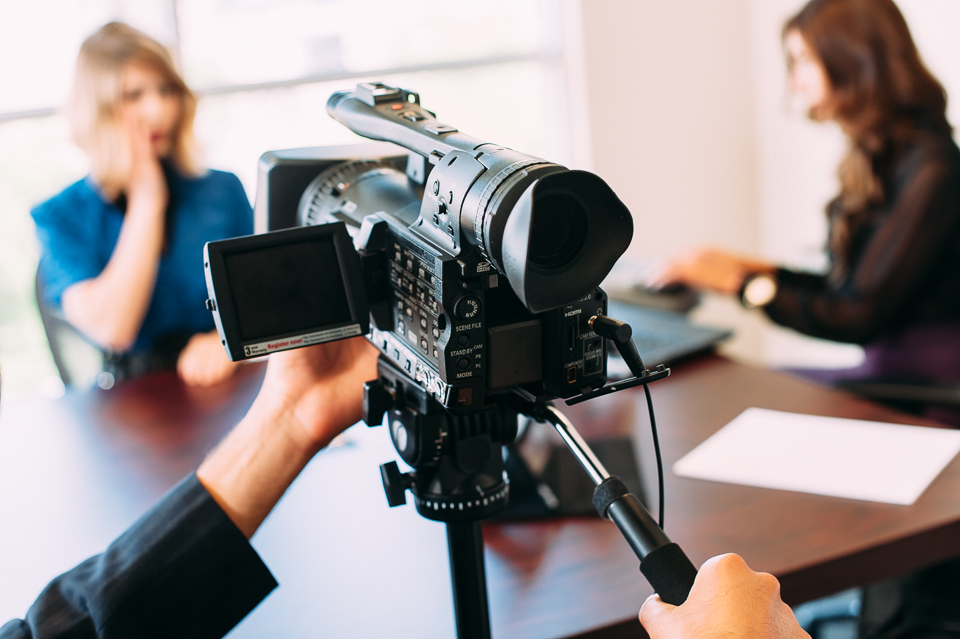A litigation checklist: What to bring to your legal video depositions session
The Value of Lawful Video Depositions in Modern Legal Solutions: What You Need to Know
Lawful video clip depositions have come to be essential in today's legal landscape. They provide a multidimensional view of witness testimonies that traditional transcripts merely can not match. By catching both verbal and non-verbal communication, these depositions enhance the total understanding of a witness's reputation. Nevertheless, the performance of video depositions rests on numerous aspects, consisting of conformity with legal criteria and ideal methods (legal video depositions). Checking out these components exposes their real importance in modern-day lawful services
What Are Lawful Video Clip Depositions?
Legal video clip depositions function as an essential device in the litigation process. They entail recording witness statements in a video clip layout, catching both spoken and non-verbal communication. This technique permits lawyers to document the temperament, expressions, and reactions of witnesses, offering a richer context for the statement. Normally performed in a controlled atmosphere, these depositions are led by lawyers who ask concerns while a stenotype reporter documents the dialogue. The resulting video clip can be important for test prep work, as it allows legal representatives to examine the trustworthiness of witnesses and fine-tune their methods. Additionally, lawful video clip depositions can be made use of in numerous legal contexts, ranging from civil conflicts to criminal situations. The acoustic and visual aspects of video clip depositions enhance the presentation of evidence, making it a crucial part in the modern legal landscape. Generally, they add substantially to the performance and performance of lawful process.

Benefits of Video Depositions Over Traditional Methods
Video depositions offer numerous benefits contrasted to standard techniques of taking witness testimonies. One significant benefit is the capacity to record both visual and audio components, giving an extra detailed document of the witness's statements. This dual layout boosts clarity and allows lawful specialists to reference certain subtleties during test prep work. Additionally, video depositions promote remote involvement, making it simpler for witnesses who might be not available for in-person appearances as a result of geographical restrictions or health issues.Moreover, video clip depositions can expedite the general deposition procedure, minimizing the time and prices linked with traveling and logistics. They likewise enhance access, as recorded depositions can be easily shared amongst legal groups and referenced at any kind of time. This convenience contributes to much better case monitoring and preparation. On the whole, video depositions stand for a contemporary, efficient technique to gathering witness testaments, aligning with the advancing needs of the lawful profession.
The Function of Body Movement and Tone in Testimonies

In lawful video depositions, body movement and tone play vital roles in conveying a witness's credibility and dependability. Nonverbal signs can offer understandings into a witness's emotional state, affecting just how their testament is perceived. Comprehending the influence of these components is vital for jurors and lawyers alike when evaluating the reliability of a testimony.
Nonverbal Communication Insights
While spoken interaction is frequently highlighted in legal statements, nonverbal signs such as body movement and tone play a necessary role in sharing integrity and feeling. Viewers of depositions might keep in mind that a witness's stance, motions, and faces can significantly affect perceptions of integrity. As an example, regular eye contact may signify self-confidence, while preventing stare might recommend dishonesty or pain. The tone of voice-- its volume, pace, and pitch-- can pass on feelings of sincerity or unpredictability. Lawyers need to be in harmony with these nonverbal signals, as they typically offer important context that matches spoken words. Comprehending these subtleties can boost the performance of depositions and influence the end result of lawful process.
Emotional Tone Influence
The emotional tone communicated during legal testaments considerably influences exactly how a witness is perceived. Body language, singing inflections, and face expressions play vital functions fit the story of a statement. A witness displaying confidence via constant eye contact and a tranquil tone can instill a feeling of dependability and engagement. On the other hand, indications of stress and anxiety, such as fidgeting or a shaky voice, might bring about apprehension regarding their account. The nuances of psychological expression can influence the analysis of truths, making it necessary for legal experts to acknowledge these hints. In video clip depositions, the auditory and visual elements incorporate, emphasizing the relevance of emotional tone in sharing sincerity and truthfulness within the legal process.
Integrity and Credibility
A crucial factor in establishing integrity and reliability throughout testimonies hinges on the witness's body movement and intonation. Observers frequently count on non-verbal hints-- such as eye Check This Out call, pose, and motions-- to assess a witness's sincerity. For example, a witness that preserves eye contact and shows open body language may be viewed as more straightforward and trusted than one that prevents eye get in touch with or shows up blocked. Additionally, tone of voice plays a necessary duty; a steady, calm tone can reinforce the reliability of the testament, while variations in pitch or quantity may elevate uncertainties. Eventually, the combination of body movement and singing tone significantly influences how a witness's statements are obtained and translated in a legal context.
Ideal Practices for Conducting Video Clip Depositions
Conducting video clip depositions needs careful planning and implementation to assure a reliable and clear presentation of testament. It is crucial to select a quiet, well-lit area to reduce distractions and safe optimal video clip quality. The devices should be examined in development, consisting of cams, microphones, and lighting, to prevent technical concerns during the deposition.Next, celebrations entailed must assess the style and procedures ahead of time, making sure that every person understands their functions. The deponent ought to be oriented on the process, including exactly how to react clearly and concisely.Additionally, preserving a specialist disposition throughout the session is necessary. This includes avoiding from speaking over each other and validating that all questions are routed properly. Ultimately, it is critical to tape-record the deposition in a format that enables very easy playback and testimonial, preserving the integrity of the statement for future use.
Lawful Considerations and Compliance Issues
Exactly how do lawful factors to consider and compliance issues influence the effectiveness of video depositions? Legal specialists must navigate a complicated landscape of guidelines, ensuring that video depositions follow jurisdictional policies and requirements. Conformity with legislations concerning privacy, permission, and recording methods is important. Getting specific authorization from all events entailed is essential to stay clear of lawful repercussions.Additionally, the admissibility of video clip proof in court can hinge on conformity with step-by-step needs. Making sure that the devices used satisfies technical standards is additionally crucial, as low quality can threaten the deposition's reliability.Moreover, lawyers should know any details state regulations that govern video clip depositions, as these can vary considerably. Failing to attend to these considerations can not only jeopardize the stability of the deposition but likewise affect the total case strategy, eventually impacting the client's lawful outcomes.
Just How Video Clip Depositions Effect Court Assumption
While video clip depositions can serve as effective devices in legal process, their influence on court assumption is substantial. The auditory and aesthetic components of video recordings give jurors with a much more detailed understanding of witness demeanor, reputation, and emotional feedbacks. This multimedia method can improve the jurors' capacity to evaluate the dependability of testament compared to conventional text-based transcripts.Moreover, video clip depositions enable jurors to observe body language, intonation, and faces, all of which can affect their analysis of the witness's statements. The existence of a witness on display can humanize them, cultivating compassion and connection, which might sway jurors' viewpoints. On the other hand, a go to this website witness that shows up incredibly elusive or undependable on video may result in unfavorable assumptions that affect a court's decision. Inevitably, the dynamic nature of video depositions plays an important function in forming how jurors analyze proof and reach their judgments.
The Future of Video Clip Depositions in Legal Technique
As innovations in innovation continue to reshape the legal landscape, the future of video depositions is look here poised for substantial evolution. Developments such as man-made knowledge, online truth, and improved video conferencing tools are expected to improve the deposition process and boost accessibility. Lawyers might use AI-driven analytics to evaluate witness reliability and situation strength a lot more effectively.Moreover, the combination of virtual reality can permit courts to experience immersive simulations of depositions, offering much deeper context and understanding. In addition, the pattern toward remote depositions is likely to persist, providing higher adaptability for lawyers and customers alike.As remote job becomes progressively normalized, video depositions will likely come to be conventional method, decreasing expenses and time restraints connected with conventional approaches. Overall, these technological advancements promise to boost the performance, performance, and accessibility of video clip depositions in lawful method, eventually changing exactly how attorneys prepare for trial.
Frequently Asked Questions
Just How Much Do Lawful Video Clip Depositions Commonly Price?

Can Video Clip Depositions Be Made Use Of in Any Type Of Sort Of Case?
Video depositions can be used in numerous sorts of situations, consisting of civil, criminal, and family members legislation. Their flexibility enables attorneys to present witness testimonies efficiently, adapting to the details needs of different legal scenarios.
What Tools Is Needed for a Video Deposition?
To carry out a video clip deposition, crucial devices consists of a high-quality video camera, microphone, illumination, and a reliable recording device. Additionally, a computer system with editing and enhancing software program might be essential for post-production and formatting the last video.
Just how Long Does a Typical Video Deposition Last?
A common video deposition lasts between two to four hours, depending upon the complexity of the case and the variety of questions postured. Prolonged sessions might occur, but breaks are typically incorporated for participant comfort.

Are Video Depositions Admissible in Court?
Video depositions are usually acceptable in court, supplied they stick to legal criteria and regulations of proof. Their usage improves clarity and preserves witness testament, assisting in the judicial process during tests and hearings. Legal video depositions have actually come to be crucial in today's lawful landscape. Furthermore, legal video depositions can be utilized in different legal contexts, varying from civil disagreements to criminal instances. Furthermore, video depositions help with remote participation, making it easier for witnesses that might be inaccessible for in-person appearances due to geographical constraints or wellness issues.Moreover, video depositions can quicken the total deposition process, minimizing the time and prices connected with traveling and logistics. Guaranteeing that the tools utilized meets technological standards is also essential, as inadequate top quality can weaken the deposition's reliability.Moreover, attorneys have to be aware of any type of specific state regulations that govern video depositions, as these can vary considerably. Furthermore, the fad toward remote depositions is likely to linger, providing better flexibility for attorneys and customers alike.As remote work ends up being increasingly stabilized, video depositions will likely come to be conventional technique, decreasing prices and time restrictions linked with conventional approaches.